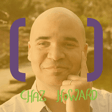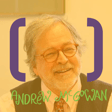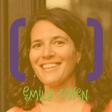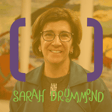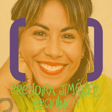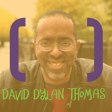
Is Church Still Relevant? with Megan McDermott
Megan McDermott
Challenge your assumptions. Test Your Faith. Show everyone LOVE.
Megan McDermott is a poet, stand up comedian, and Episcopal priest currently working in Massachusetts.
CONTENT WARNING: Christianity and Christian supremacy
We talk about: shared experiences growing up in small town Central Pennsylvania
Rural, small town values that we embrace and other things that we’ve let go of
Nuances between different Christian subcultures and how they have formed us
The relationship between Christianity and late stage capitalism
Christian pop culture — music, toys, media
Becoming a young clergy person and working with youth during the pandemic
Megan's Brand new book, Jesus Merch: a Catalogue in Poems
Order Megan’s New book, Jesus Merch (affilitate link) https://bookshop.org/a/95818/9781594981029
Order Megan’s Book, Woman as Communion (affiliate link) https://bookshop.org/a/95818/9781735886473
Check out Megan’s website: meganmcdermottpoet.com
Follow Megan on BlueSky: megmcdermott92.bsky.social
Follow Megan on Twitter (X): @megmcdermott92
Subscribe to Megan on Substack: https://meganmcdermott.substack.com/
*****
This program is produced in south west philadelphia, in the unceded neighborhood of the black bottom community and on the ancestral land of the Lenape nation, who remain here in the era of the fourth crow and fight for official recognition by the commonwealth of Pennsylvania to this day. You can find out more about the Lenape Nation of Pennsylvania and how you can support the revitalization of their culture by going to https://lenape-nation.org.
Visit this episode’s sponsor, BVP Coffee, roasting high quality coffee that benefits HBCU students (affiliate link): https://bvp.coffee/uncommongoodpod
Visit this episode's sponsor, Poi Dog, chef Kiki Aranita creating sauces inspired by Hawaiian Cuisine: https://poidogphilly.com
we chat to ordinary people doing uncommon good in service of our common humanity.
we are creating community that builds relationships across difference by inviting dialogue about the squishy and vulnerable bits of life.
(un)common good with pauli reese is an uncommon good media production, where we make wisdom, insight, and spirituality accessible to everyone and put content on the internet to help people stop hating each other.
thanks for joining us on the journey of (un)common good!


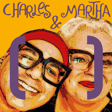
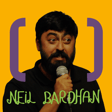
![BONUS: [moim] Gathering, David Rubenstein Atrium at Lincoln Center image](https://media.zencastr.com/cdn-cgi/image/width=112,quality=85/image-files/62b64321a33e0c0035b4bc2e/a5bd46bd-6072-4365-94bb-c1391a3e5105.jpeg)







